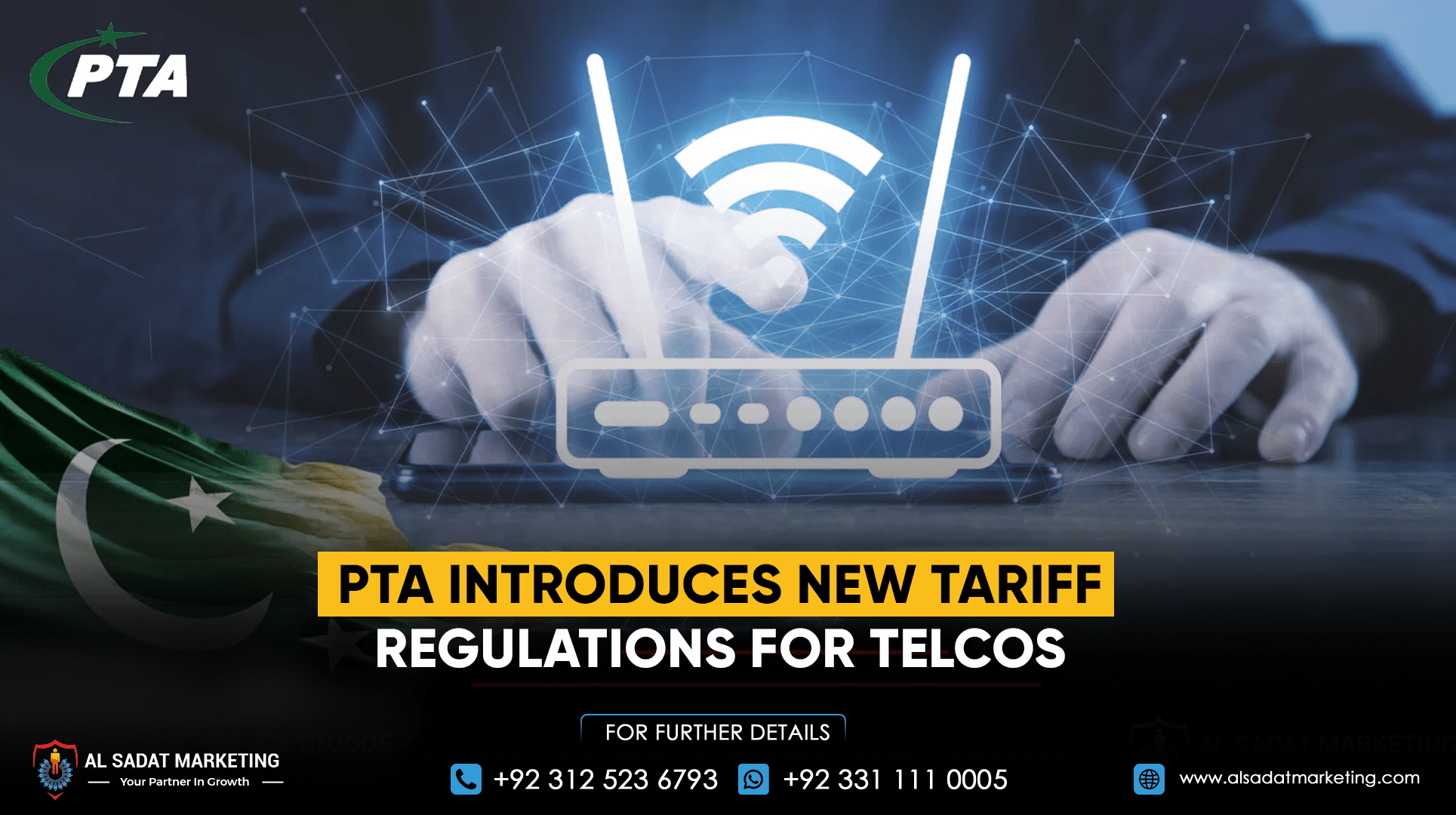The Pakistan Telecommunication Authority (PTA) has introduced the “Tariff for Cellular Mobile Telecommunication Services Regulations, 2024,” which aims to provide pricing flexibility, protect consumer interests, and prevent the cross-subsidization of other telecommunication services.
Also Read: Affordable Plots Available in Lakeshore KPK for Only 25,000
These new regulations will apply to all Cellular Mobile Licensees, overseeing the retail tariffs for licensed services charged to consumers. Cellular Mobile Licensees must adhere to the following principles when setting tariffs for cellular mobile telecommunication services:
- Ensure pricing flexibility while safeguarding consumer interests.
- Set tariffs at a level that offers a reasonable rate of return on investments, considering operational costs.
- Avoid cross-subsidization of other telecommunication services.
Procedures for Tariff Approval
The procedures for tariff approval differ between Significant Market Power (SMP) licensees and non-SMP licensees:
- Non-SMP Licensees: These licensees can set and revise their tariffs independently, provided they notify the PTA and consumers at least seven days before any changes take effect. However, the PTA reserves the right to modify these tariffs if they adversely affect consumer interests.
- SMP Licensees: These licensees must submit detailed proposals, including criteria for establishing tariffs, to the PTA at least fifteen days before the intended launch. Proposals must include comprehensive cost data and calculations to ensure tariffs do not lead to predatory or excessive pricing.
Directory Inquiry and Assistance Services
The regulations stipulate that no charges should be imposed for operator assistance or directory inquiry services unless approved by the PTA. Licensees must submit requests for such tariffs at least fifteen days in advance and establish a dedicated, free-of-cost helpline for consumers to access assistance via Interactive Voice Response (IVR).
Detailed Tariff Proposals
Licensees must submit comprehensive tariff proposals to the PTA’s Director General (Commercial Affairs) via letter, fax, or email. Proposals should include:
- The basis for the proposed tariff and supporting evidence.
- Detailed cost data and calculations to prevent predatory pricing.
- Data on the margin or reasonable rate of return.
- Detailed cost data for each service is included in bundled tariffs.
Tariffs will be considered burdensome if they result in abnormally high profits, exceed industry benchmarks or inflation, are beyond average consumer affordability, or any other factor determined by the PTA.
Regulation of Interconnection Charges
The PTA will regulate SMP licensees’ interconnection charges and wholesale tariffs, including the Mobile Termination Rate (MTR), based on Long Run Incremental Cost (LRIC) or other methodologies like international benchmarking.
Transparency and Consumer Information
Licensees must provide updated national and international roaming tariffs on their websites, including terms and conditions. Consumers must be informed of applicable roaming charges via SMS after selecting a licensee while abroad. Only services requested in writing by the consumer should be activated for international roaming, and consumers must not be charged beyond their security deposit. Furthermore, automatic renewal of subscription-based packages is prohibited without explicit consumer consent. In cases of auto-recursive renewals, explicit consent and steps for unsubscribing must be communicated to the consumer before the first renewal.
These comprehensive PTA tariff regulations aim to create a balanced and fair telecom industry in Pakistan. They ensure that consumers are protected while allowing licensees the flexibility to innovate and compete.
For more news and updates, visit the Al Sadat Marketing Website.










